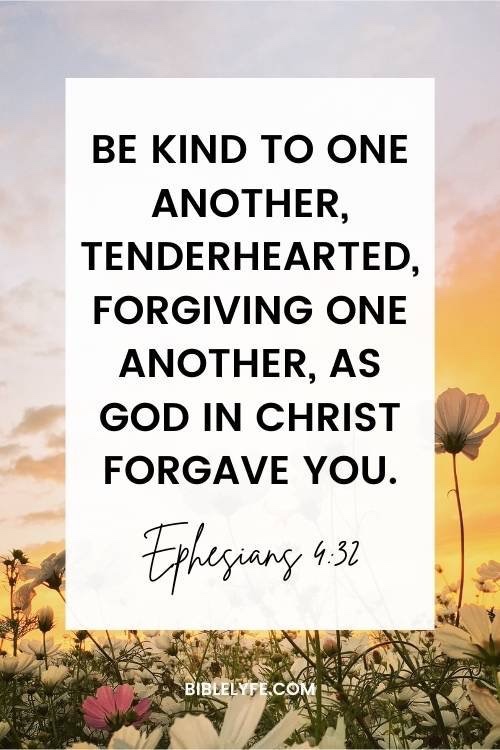Forgiveness is a fundamental concept that resonates throughout the Scriptures, teaching us valuable lessons about compassion, healing, and the grace of God. It has played a key role in my life, especially pointing me to the goodness of God and seeing that goodness in His children. Below are several lessons about forgiveness that have been shown to me through the years and I hope they will mean something to you as well.
Forgiveness is a Divine Act. One of the most powerful examples of forgiveness in the Bible can be found in the parable of the Prodigal Son (Luke 15:11-32). This story beautifully illustrates the Father’s unconditional love and forgiveness, welcoming back his wayward son with open arms. We learn that God’s forgiveness is boundless and available to all who repent. Therefore my forgiveness should be boundless.
The Lord’s Prayer is a model of forgiveness. In the Lord’s Prayer (Matthew 6:9-13), Jesus teaches us to pray for forgiveness as we forgive others. This passage reminds us of the reciprocity of forgiveness – the extent to which we forgive others directly influences the forgiveness we receive from our Heavenly Father. It underscores the importance of extending grace to one another. Jesus says, “Forgive us our trespasses as we forgive those who trespass against us” (Matthew 6:14-15). This verse reinforces the concept that we must be willing to forgive others just as we expect God to forgive our sins. Forgiveness is not just a one-way street but a continuous cycle of grace and mercy.
Joseph’s Forgiveness is a Testament of Strength. The story of Joseph and his brothers (Genesis 37, 39-45) offers an inspiring example of forgiveness. Despite being betrayed and sold into slavery by his own siblings, Joseph forgives them when they come to him in need. His journey from betrayal to forgiveness reminds us that forgiveness can bring about healing and restoration. I find myself needing to forgive others for much less. Shame on me if I find it hard to offer the grace that has been offered me.
Forgiveness leads to peace. In Colossians 3:13, we are instructed to “bear with each other and forgive one another if any of you has a grievance against someone. Forgive as the Lord forgave you.” Forgiveness not only mends relationships but also leads to inner peace and harmony within the community of believers.
The Sacrifice of Jesus: The Ultimate Act of Forgiveness. The pinnacle of forgiveness in the Bible is seen in the crucifixion of Jesus Christ. His sacrifice on the cross for the forgiveness of our sins demonstrates the magnitude of God’s love and forgiveness. Jesus, even in his agony, cried out, “Father, forgive them, for they do not know what they are doing” (Luke 23:34). This profound act of forgiveness serves as the foundation of our faith and redemption, underscoring the importance of forgiving others as we have been forgiven.
Forgiveness brings healing. In James 5:16, we are told to confess our sins to one another and pray for each other so that we may be healed. Forgiveness is not only a spiritual act but also a source of emotional and physical healing. Holding onto bitterness and resentment can be detrimental to our health, and forgiveness brings about freedom and restoration.
Forgiving Seventy Times Seven. In Matthew 18:21-22, Peter asks Jesus, “Lord, how many times shall I forgive my brother or sister who sins against me? Up to seven times?” Jesus responds, “I tell you, not seven times, but seventy times seven.” This statement is a call to limitless forgiveness. It highlights that forgiveness should be a continual practice in our lives, not a limited resource.
The Blessings of Forgiveness. In Psalm 32:1-2, King David beautifully expresses the blessings of forgiveness: “Blessed is the one whose transgressions are forgiven, whose sins are covered. Blessed is the one whose sin the Lord does not count against them.” Forgiveness brings relief from guilt and the assurance of God’s love.
In our journey of faith, let us remember that forgiveness is a divine act that brings healing, reconciliation, and blessings. Through Christ’s sacrifice and the biblical teachings on forgiveness, we are called to extend grace to others as we have received it from our Heavenly Father. By doing so, we live out the gospel, becoming instruments of God’s love and reconciliation in the world. Forgiveness is a central theme in the story God has been telling. that reflects His boundless love and grace. Because of that, we are called to live from a place of compassion and mercy to one another.
May you experience the peace that comes with living in His forgiveness.



